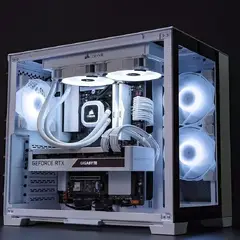AMD GPUs seems to have an advantage over the equivalent GeForce models in the BF5 alpha
-
Featured Topics
-
Topics
-
0
-
rdmchr ·
Posted in New Builds and Planning0 -
BentleyOwen123 ·
Posted in Console Gaming2 -
Sai125943 ·
Posted in New Builds and Planning6 -
3
-
WarmEngine ·
Posted in Troubleshooting0 -
FormatAbuser ·
Posted in CPUs, Motherboards, and Memory4 -
Izume ·
Posted in CPUs, Motherboards, and Memory9 -
20
-
6
-

.thumb.gif.1b5395b31b6674b36f965263eca150b2.gif)
















Create an account or sign in to comment
You need to be a member in order to leave a comment
Create an account
Sign up for a new account in our community. It's easy!
Register a new accountSign in
Already have an account? Sign in here.
Sign In Now